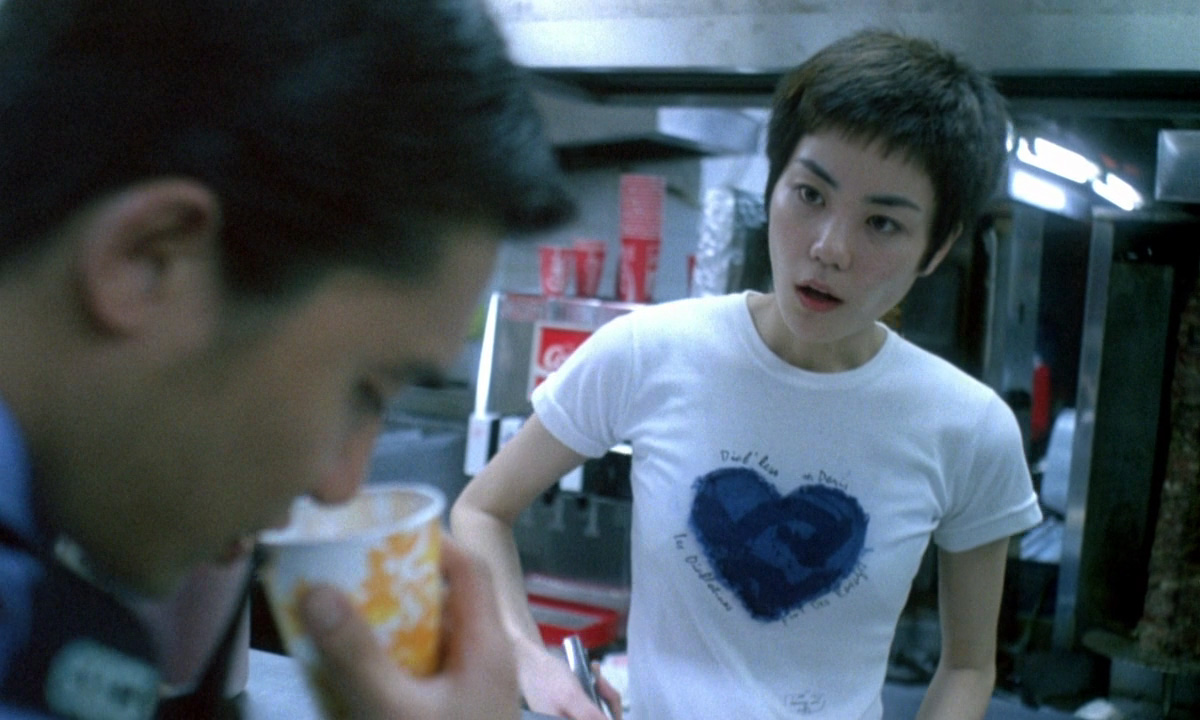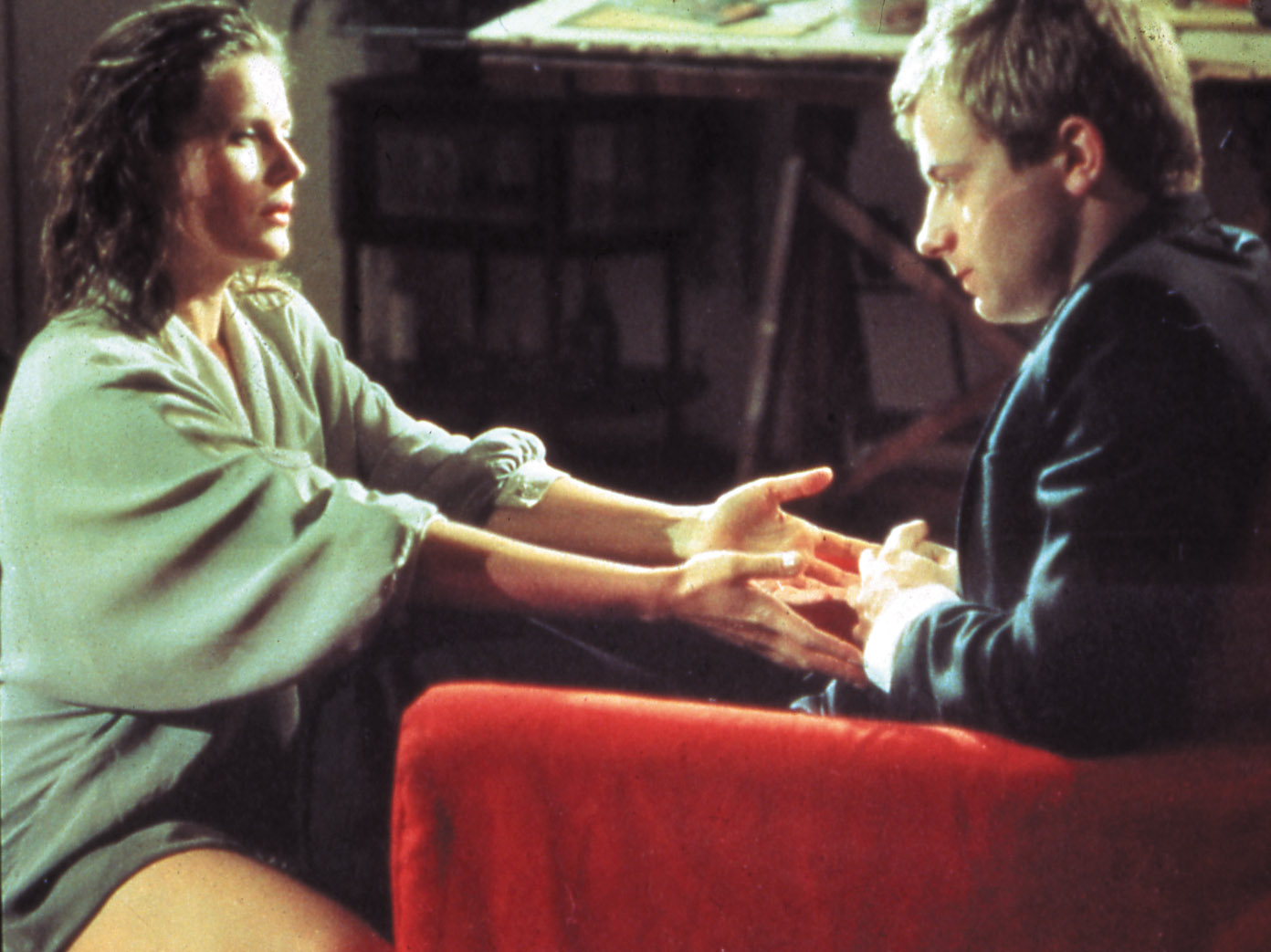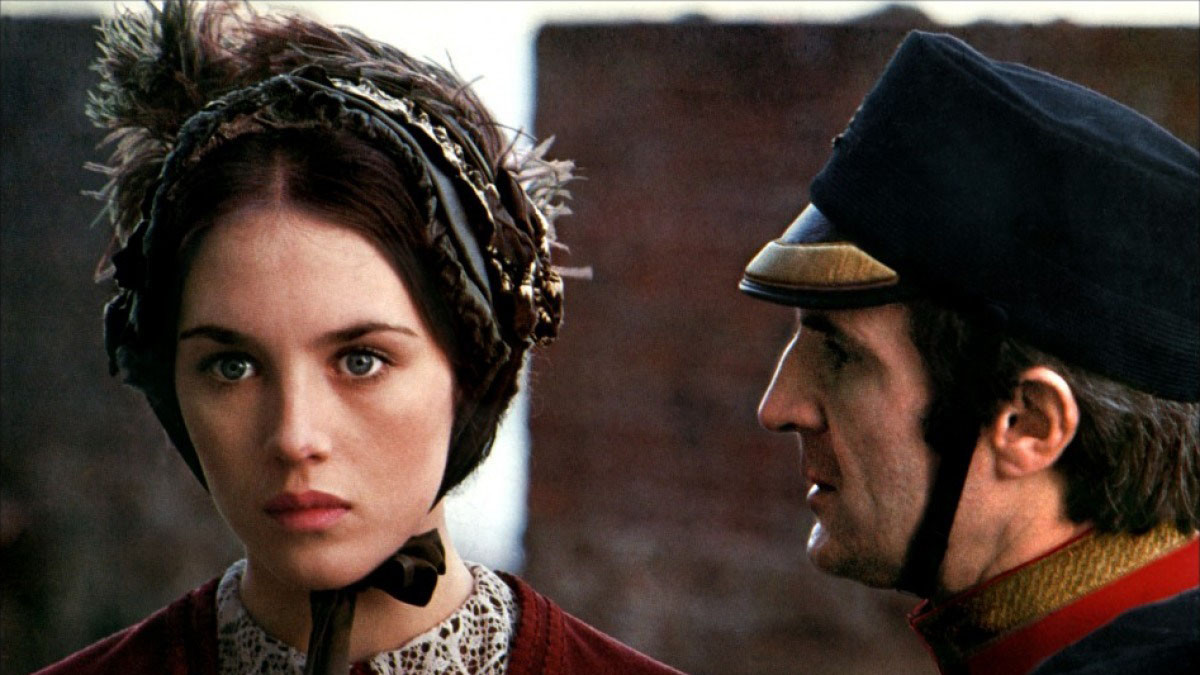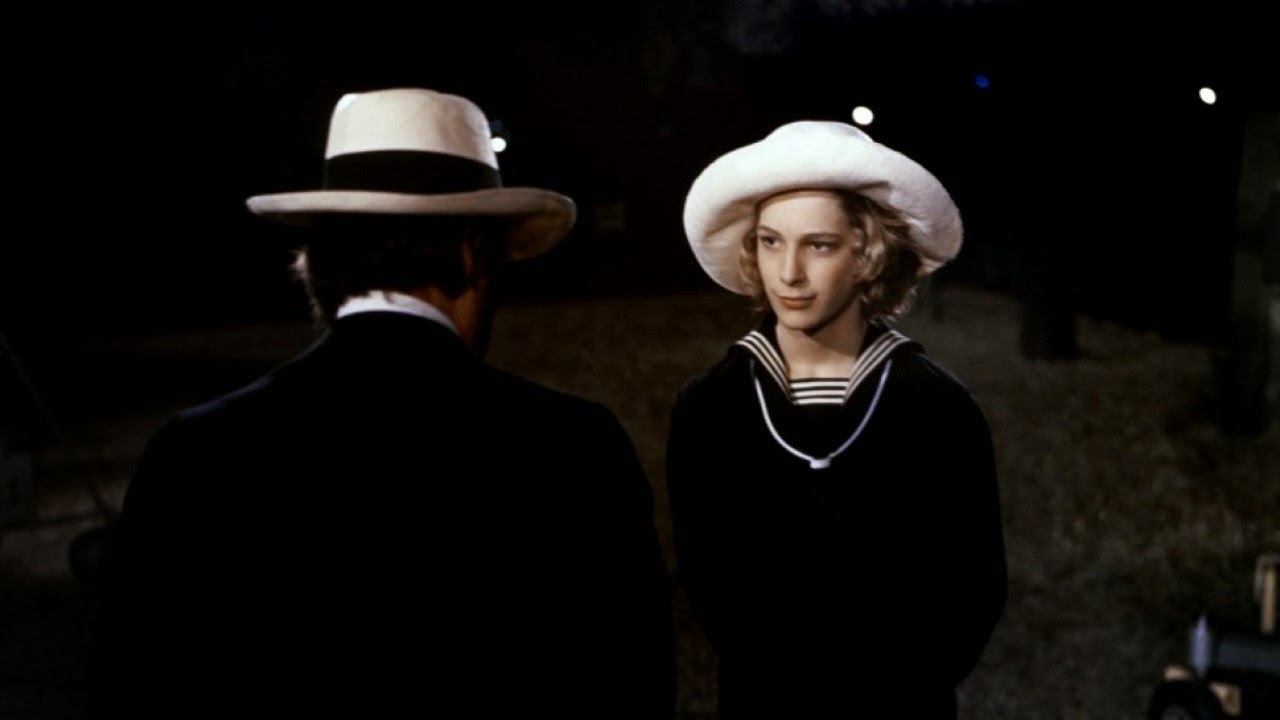5. Chungking Express

Wong Kar-wai’s movie about two lovestruck cops is filmed in impressionistic splashes of motion and color. The first half belongs to Cop 223, who has broken up with his girlfriend of five years. He purchases a tin of pineapples with an expiration date of May 1 each day for a month.
By the end of that time, he feels that he will either be rejoined with his love or that their love too will have expired forever. In the second half, we meet Cop 663, who is dealing with his breakup with his flight attendant girlfriend. He talks to his apartment furnishings until he meets a new girl at a local lunch counter.
This is the kind of movie you’ll relate to if you love film itself, rather than its surface aspects such as story and stars. Both of the stories, about disconnections, loneliness, and being alone in the vast city, are photographed by Christopher Doyle in the style of a music video, crossed with a little Godard and some Cassavetes. What happens to the character is not really the point. The movie is about their journeys, not their destinations.
It’s not a movie for casual audiences, and it may not reveal all its secrets the first time through, but it announced Wong Kar-wai, its Hong Kong-based director, as a filmmaker in the tradition of Jean-Luc Godard. If you like this movie, you should also watch “Fallen Angels,” which is a nice counterpart.
4. Les Amants du Pont-Neuf

Leos Carax’s movie begins on the ancient Pont-Neuf, the oldest bridge in Paris, where two drifters discover each other. One is Michele (Juliette Binoche), an artist who is going blind. The other is Alex (Denis Lavant), a drunk and drug addict who supports himself by fire-breathing. The bridge has been closed for a year for repairs and they make it their home for the summer.
The lovers are both reckless and secretive. Michele, who wears a dressing over one eye, doesn’t reveal for a long time that she is going blind. Alex loves her and yet would rather read her mail and break into her former home than ask her about herself.
Imagine a kind of love that makes you set missing-person posters of your loved one afire, just so they will stay with you. Dark.
3. A Short Film About Love

Within the confines of a housing apartment, teenager Tomek reaches out from his loveless isolation. His voyeuristic scrutiny of the windows in the building next door causes a romantic fascination with Magda, a beautiful older woman. Fervent gaze heralds hesitant touch as Tomek’s boyish attempts to reach Magda grow in both resourcefulness and success.
Face to face with the woman he adores, Tomek confronts his own doubt and the impenetrable mantle of cynicism and disappointment that keeps Magda unreachable from any distance. For Magda, the spiritual beauty that Tomek’s infatuation may awaken within her sets the stage for torment and redemption of Shakespearean dimensions.
This is one of the best movies about platonic love, any kind of love to be frank. Krzysztof Kieślowski’s movie is a companion piece not only to the landmark 1988 “Dekalog” miniseries, from which this expanded version originally came, but also the likewise enriched and deepened “A Short Film About Killing.”
Like all the episodes of “Dekalog,” it purports to take its inspiration from one of the Ten Commandments, but in practice, the segments only deal with a rigid moral law in the most obtuse and poetic way. This one dealt with the sixth commandment (against fornication), but the movie itself is much more than just that.
2. L’histoire d’Adèle H.

Is there anything François Truffaut couldn’t do? Apparently not. The movie’s protagonist is Adèle Hugo. She is the youngest daughter of Victor Hugo, who is in political exile from France after he opposed the new Empire.
The film begins with her arriving at a British channel island in 1863. She is looking for the lieutenant who had seduced her and whom she loved, but who was looked down on by her family. She finds him, but he refuses her and she sinks into madness. In the coded journals she kept during her long life, she wrote the history of her doomed love. When the lieutenant was posted to Halifax, she followed him there. She trailed him through the streets; she spied on him in the countryside, in town, and in the boudoirs of his lovers.
Truffaut finds a certain nobility in her. He quotes one of the passages in her diaries twice: She writes that she will walk across the ocean to be with her lover. He sees this not as a declaration of love, but as a statement of a single-mindedness. She was mad, probably, but she lived her life on such a romantic scale that it’s just as well Pinson never married her. He would have disappointed her.
1. Morte a Venezia

Well, every list must be concluded in time. I end mine with a favorite. Italians know about love. All kinds of love. “Death in Venice” is a classic of Luchino Visconti’s. Based on a novel by Thomas Mann, the movie stars Dirk Bogarde as a German composer who is terrified that he has lost all vestiges of humanity.
While visiting Venice, Bogarde falls in love with a beautiful young boy. Bogarde’s obsession with the boy’s youth and physical perfection gets worse every passing minute. The composer realizes that the boy represents an ideal that he can never match. The character played by Bogarde is evidently intended to be Gustav Mahler, whose music is featured in the film’s soundtrack.
In the novel, Count Aschenbach goes to Venice at a certain season in his life, driven by a compulsion he does not fully understand and confronted by strange presences who somehow seem to be mocking or tempting him. The boy represents, above all, an ideal of perfect physical beauty apart from sexuality.
Visconti undermines this contrast between beauty and the intellect by changing the Aschenbach character from a writer to a composer. He made the change because he decided that Mann had based his character on Mahler. There are flashbacks where Aschenbach argues that beauty resides in the intellect, and a friend declares that beauty is a quality naturally possessed by beautiful things.
Aschenbach’s position could be held by a philosopher and scholar, but not by the composer of the romantic Mahler symphonies that are constantly present on the soundtrack. But all in all, it is a great movie about platonic love. One that deserves to be on the list, just for Visconti’s mastery of visual style.